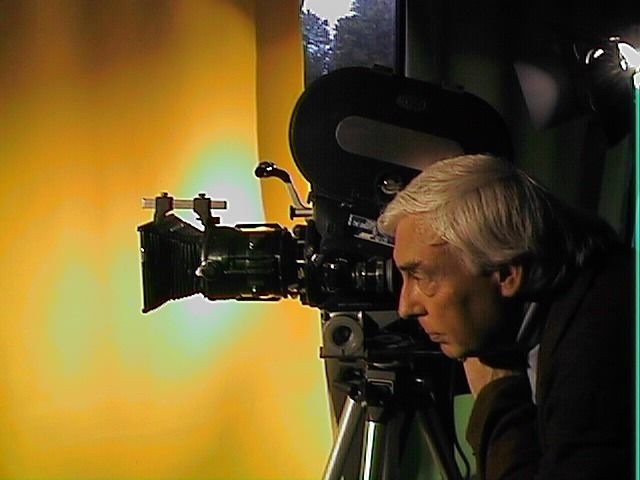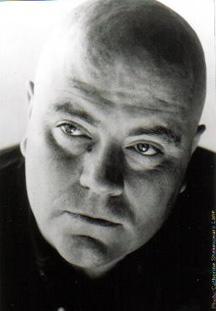ASK & DISCUSS
INDEXbest university
11 years, 3 months ago - lyly bui
i am started brit school bdc soon and was wondering what is the best university to go to after brit school. i was thinking to go and study in america because there directing and producing courses are better there? is that right? also why isn't there any good colleges that offer filmmaking courses
Only members can post or respond to topics. LOGIN
Not a member of SP? JOIN or FIND OUT MORE
11 years, 3 months ago - Dan Selakovich
Echo John and Paddy (as usual). But I'd say film school depends on what you want to do in the end. If you want to write, direct or edit (or all 3), I'd say film school is invaluable. At least it was for me. You need time to hone those types of skills, and nearly impossible to do "on the job." I started out shooting commercials in the late 70s, then went to California Institute of the Arts (CalArts) in the early 80s. I was lucky enough to have Alexander Mackendrick (Man in the White Suit, Lady Killers, Sweet Smell of Success) as my directing instructor. A working screenwriter as my writing instructor, and on and on... Being an art school, film students had it made. There was an acting school, music school, dance, theater design and technology school, and everything else it takes to make a movie at your finger tips. The very best thing about film school is equipment. Try getting a mixing stage on the cheap outside of school. Doesn't happen.
One thing nobody mentions about film school is the connections you make. I've know more than a few editors that met their directors in school, and they just never stopped working together. I got my first editing gig because a classmate was a PM on a feature and recommended me. Be a team player in school, and that shit will follow you into the real world.
About school in America: Go to a proper film school in or near production capitals. That's New York City or Los Angeles. STAY AWAY from "for profit" schools. They all suck. In L.A. that leaves USC, UCLA, and CalArts (though they mostly focus on docs and experimental filmmaking nowadays). If you're into animation, CalArts is the ONLY place to go. Disney will suck you out of there before you graduate if you're any good at all. I'm not kidding. You might look into Chapman University near L.A.--their film program is getting really good.
If and before you even think about film school here, get "Film School Confidential". While a bit out of date, there's still some good info:
http://www.amazon.com/Film-School-Confidential-Insiders-Schools-ebook/dp/B00256Z2AU/ref=sr_1_1?ie=UTF8&qid=1405901381&sr=8-1&keywords=film+school+confidential+the+insider%27s+guide+to+film+schools
If you want to produce, I'd recommend skipping school. Start as a P.A. and work your way up. Don't forget that "side jobs" outside of production can really be beneficial to producing. Things like working at a distributor, an entertainment attorney, a mixing stage (post sound), sales agents, producer's reps... all those help in producing.
If you end up in L.A., Lyly, give me a ring! Or feel free to email me if you have any questions.
11 years, 2 months ago - John Lubran
Well the BBC is a very large organisation Len so I imagine there's all sorts of variations to a rule. Without knowing the specifics of your friends circumstances I can't comment beyond re-iterating that even though the BBC still subscribe to the notion that degrees are a reliable measure of ability, they've leaned, as we have, that too many media degrees fall short of the application required in the real world. Mind you, for all the Beeb has been a national treasure of independence and integrity for decades they've increasingly lost their balls to creeping political tyranny and pseudo moral hypocrisy. Fortunately the more acquiescent they've become to entirely unlawful intimidation the greater has become the perceived relative integrity of other platforms. I don't see any signs of that changing any time soon.
11 years, 3 months ago - Paddy Robinson-Griffin
Don't get me wrong, there are plenty of other good reasons to go to college, but for getting a job in media it isn't a prerequisite.
11 years, 3 months ago - John Lubran
OK, so your first language clearly isn't English; it probably doesn't matter a great deal but as a production skills teacher it’s worth mentioning as it may impact on the effectiveness of this response to your question.
If I've suggested it once I must have done so a thousand times. I’m not a great admirer of film schools but the lack of real world opportunities makes them the only option for many. I’m continually flabbergasted at the lack of practical knowledge of graduates who have been awarded degrees and even MA’s at honours level. What the heck have they been doing for three years or more!? I’m not exaggerating at all when I state that I've lost count of the number of times that graduate students who've completed three year degree courses and then had to attend our two and three day short courses, have said “I've leaned more here in two days than in three years at university”. One simply could not make that up!
As a member of the British film making community I’m not going to agree that Americans do it better, however they do have much greater resources and production opportunities. But it’s worth considering that a significantly disproportionate percentage of top professionals engaged within the American industry are actually British and mostly they did not learn their trade in American universities!
I took the opportunity to respond to a similar question here only recently; this is what I wrote;
Every part of film making education is approachable by at least two processes. Learning by rote and learning by God given aptitude. Then there’s the technical operating demands that differ from project to project, mostly to do with production apparatus and how to interface and work with software. In my experience nearly every specific technical production skill (not necessarily its artistic application) essential to film making has been demonstrated to be rapidly achievable, in many cases, within weeks, certainly not years. The keys to rapid progress are opportunity, aptitude and importantly attitude (particularly to other people, there’s nothing more inappropriate than being a graceless arse). Apart from excellent social skills the management of departments and people is more about organisational and business skills than any profound knowledge of technicalities.
Apart from being an independent film maker, I've been teaching most aspects of television, documentary and ‘low budget’ film making for over twenty years and been involved in a few bigger budget features too. One of the profound realisations I've come to is just how hugely different are the career development paths of individuals. Whilst there’s a lot to learn for those who want to have a working ability, if not high skill, in everything about film making, none of it is rocket science; it’s more about creative artistry and intelligence. Some folk opt for the formal training routes beloved of educational institutions (businesses) and for some that process works appropriately, but unless the ‘spirit quickens’ and the aspirant acquires ‘critical mass’ early, which enables jumping across from learning by rote to learning by creating, that path can be a very long one indeed. The God given aptitude path however can be astonishingly rapid and I've seen careers bloom from virtual ‘know nothing’ to multifaceted and multitasking brilliance within just months and even in a few cases within the relative instantaneousness of weeks. The trigger point is when vision and confidence merge with a sufficiency of technical understanding.
11 years, 3 months ago - Paddy Robinson-Griffin
^^^ What John says. I've just wrapped a feature with 50-odd crew, and couldn't tell you what qualifications any of them had. The only things that mattered were if they could do their job and get along with people.
11 years, 2 months ago - Franz von Habsburg FBKS MSc
I didn't have any luck with the BBC after leaving drama college. On the application form (early 60's) one had to state that both parents and four grandparents were British born! That left me out! I then went to the LFS which was the best in 1964 and went on to found the Brighton Film School (with the same syllabus!) in 1999 which I ran until 2011, ending in the founding of an MSc in Cinematography with Greenwich Uni in conjunction with Arri so we taught all the technical skills, but Dan, you are right, producing is very different as it also requires financial and admin skills, which is also why I became an accountant and after leaving the LFS in 1965 when the unions were closed, I began in distribution which is an excellent starting place as one learns about what costs and sells. Distribution companies are also permanent and employ more people so provide a safer environment! You also need office skills so get into an office (any will do) to get admin skills. One student broke a lever arch file (containing our casting lists) as it was an unknown item, so simply pulled it open instead of using the lever!!! I could write a book about the general level of ignorance which I found sad. When building a set they didn't know about skirting boards and picture rails (they make flats look like a real room) so put them the wrong way around!
11 years, 3 months ago - Joshua Kahan
You don't need anything to work in a production company except persistence or a contact to get you in in the first place.
If you want to learn the best thing would probably be to get involved with as many productions on here as you can and/or making your own little videos. I was a runner for a year and barely got on any shoots (why is another story).
If I had the money for film school I'd just make films. That's my opinion, there are plenty of benefits I'm sure to studying in a film school, contacts and friends you make for one.
11 years, 2 months ago - Len Collin
Not quite true about the BBC John. It depends what role you are looking for. Recently a producers position came up on a BBC LRS, a friend of mine who had been a senior script editor on the show and had also stood in as a producer, went off and got experience on other shows, didn't even get short listed for the producer position, even though he knows the exec and all the heads of department. Apparently this was because he didn't have a degree. Though in principle I absolutely agree with you, more is learned by doing. The best Universities will be those that respond to the industries needs, rather than academic needs. Universities that hire practitioners to teach rather than just academics.
11 years, 3 months ago - John Lubran
Even the BBC don't think media and production qualifications are significant, they like to teach people themselves. They do however like those with qualifications in other things like sciences and history. The best qualifications are a demonstrable ability, as revealed by credits and works.







